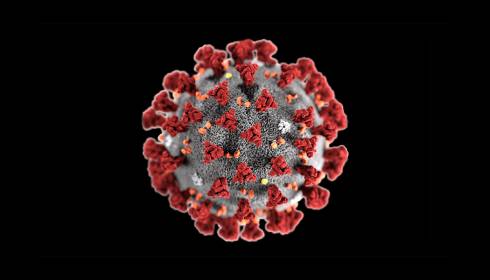
'Increased risk of reinfection with Omicron variant' warns WHO
Rajeev Choudhury
The World Health Organisation (WHO) has warned that there may be an increased risk of reinfection with the 'Omicron' variant of COVID19 virus that was recently reported from South Africa and classified as a Variant of Concern (VOC) by the world body.
“Preliminary evidence suggests there may be an increased risk of reinfection with Omicron meaning that people who have previously had COVID19 could become reinfected more easily with Omicron, as compared to other variants of concern, but the information is limited. More information on this will become available in the coming days and weeks,” a statement issued by the organisation said.
Regarding transmissibility of the variant, the world body said that it is not yet clear whether Omicron is more transmissible compared to other variants, including Delta; however, the number of people testing positive has risen in areas of South Africa affected by this variant, but epidemiologic studies are underway to understand if it is because of Omicron or other factors.
“It is not yet clear whether infection with Omicron causes more severe disease compared to infections with other variants, including Delta,” the statement added.
“Preliminary data suggests that there are increasing rates of hospitalisation in South Africa, but this may be due to increasing overall numbers of people becoming infected, rather than a result of specific infection with Omicron,” the world body said.
“More information will emerge in the coming days and weeks and WHO’s technical advisory group on virus evolution will continue to monitor and evaluate the data as it becomes available and assess how mutations in Omicron alter the behaviour of the virus,” WHO added.
The world body has asked its member states to remain vigilant by enhancing surveillance and sequencing of cases.
It has also called upon the countries to share genome sequences on publicly available databases and initial cases or clusters to the WHO.
The world body has asked the rich countries to urgently address the issue of inequities in access to COVID19 vaccines to people in poor nations. “In addition, it is vitally important that inequities in access to COVID19 vaccines are urgently addressed to ensure that vulnerable groups everywhere, including health workers and older persons, receive their first and second doses, alongside equitable access to treatment and diagnostics.”
“The Omicron variant reflects the threat of prolonged vaccine injustice. The longer we take to deliver the vaccine equity, the more we allow the COVID19 virus to circulate, mutate and become potentially more dangerous,” the Director-General of WHO, Dr Tedros Adhanom Ghebreyesus twitted.
Meanwhile, Japan has joined Morocco and Israel on Monday to ban foreigners from entering their country after South Africa reported the Omicorn variant of the COVID19 virus.